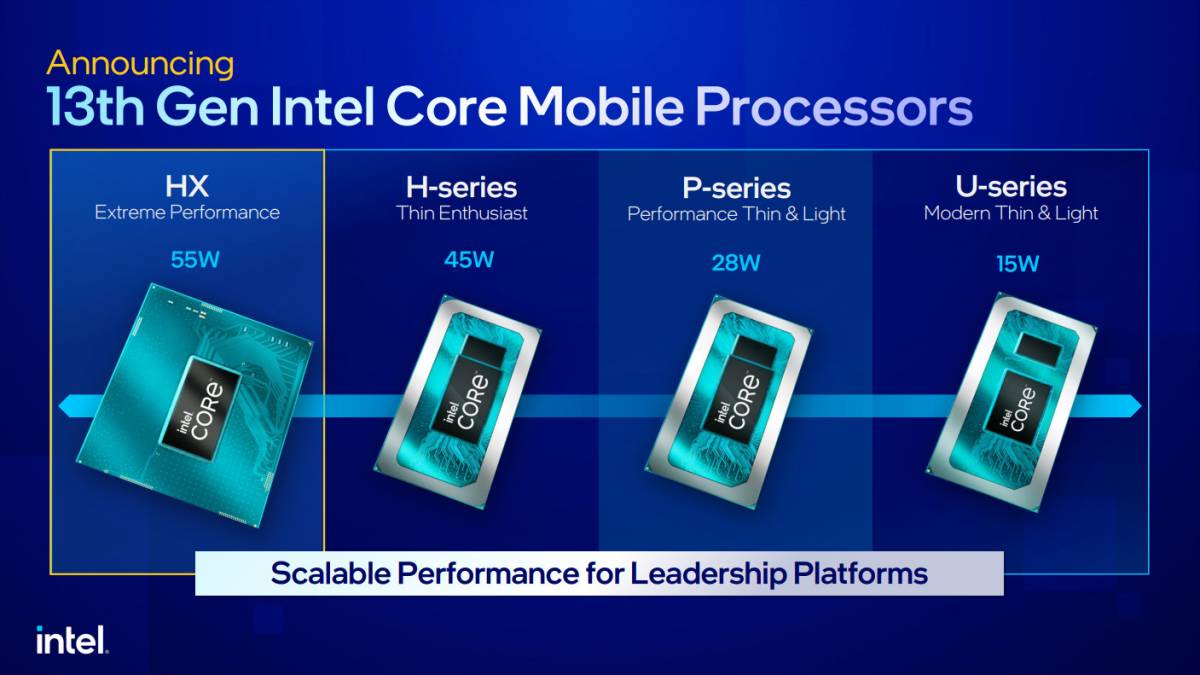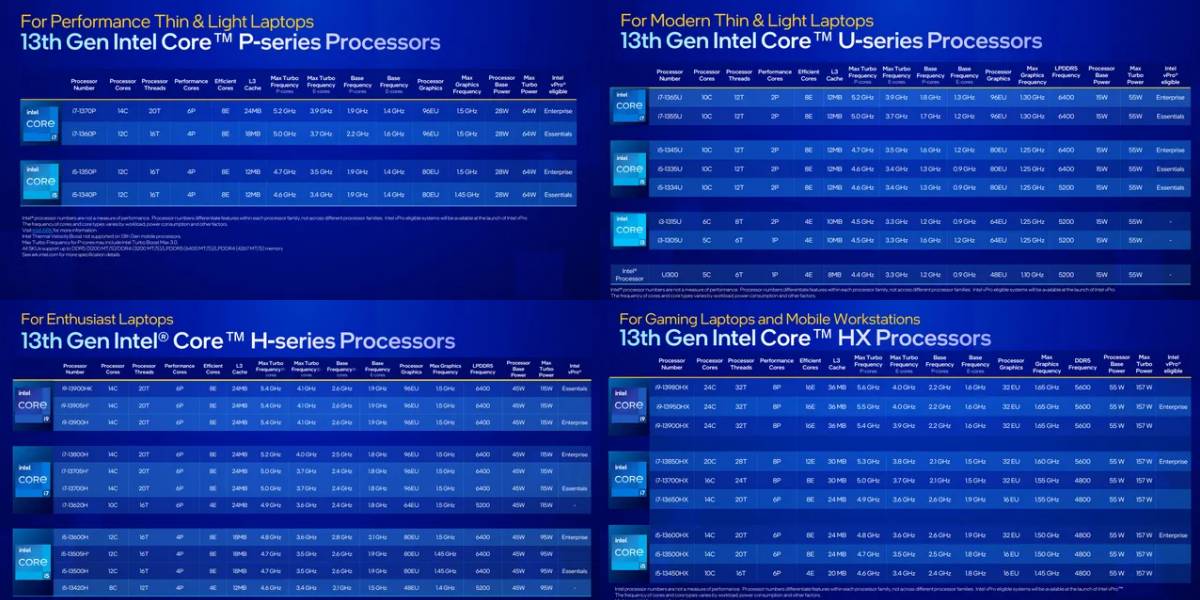
Intel revealed the “world’s fastest mobile/laptop processor” with 31 other variants at CES 2023 event, which was held in Las Vegas. The 13th-Gen desktop processors from Intel are already dominating the industry with their enhanced performance.
And now, they are bringing the 13th-Gen mobile/laptop processors in four different series, and undoubtedly, one of the processors from this announcement retains 24 cores, and this is the first mobile processor with 24 cores.
Intel’s 13th-Gen Mobile CPU Series: All Details
This 13th-Gen mobile processor lineup is divided into four series, which are HX Processors, H-series, P-series, and U-series. Firstly let’s talk about the most potent flagship, the Intel Core i9-13980HX.
As Intel claims, Intel Core i9-13980HX is the world’s fastest mobile processor as it contains 24 cores and 32 threads, which is the first time for a mobile/laptop processor.
And this processor has a 5.6GHz turbo frequency with a base power consumption is 55W, and a max turbo power consumption is 157W, which makes it a hefty processor for a laptop.
You can see in the above image all other processor’s specs which are regularly performed with their lower by lower-tier specs and power consumption, according to your work preference.
All these processors will soon jump into the market by getting into laptops such as Intel Core i9-13980HX will come high-end gaming laptops.
Also, all the 13th Gen processors support both types of RAM: the DDR4 (up to 3,200MHz) and DDR5 (up to 5,600MHz), and in terms of capacity, it can pair with up to 128GB of RAM.
With all these specs, details now head to its performance part. According to Intel’s claim, the single-thread performance is improved by up to 11 percent, and multitasking performance is improved by up to 49 percent in comparison with Intel’s 12th Gen CPUs.
Separately, over 250 OEM brands, such as Razer, MSI, ASUS ROG, and more, are covering laptop designs with the complete 13th Gen range.
The post Intel’s New Most Powerful 13th Gen Mobile CPU Includes 24 Cores appeared first on TechViral.


